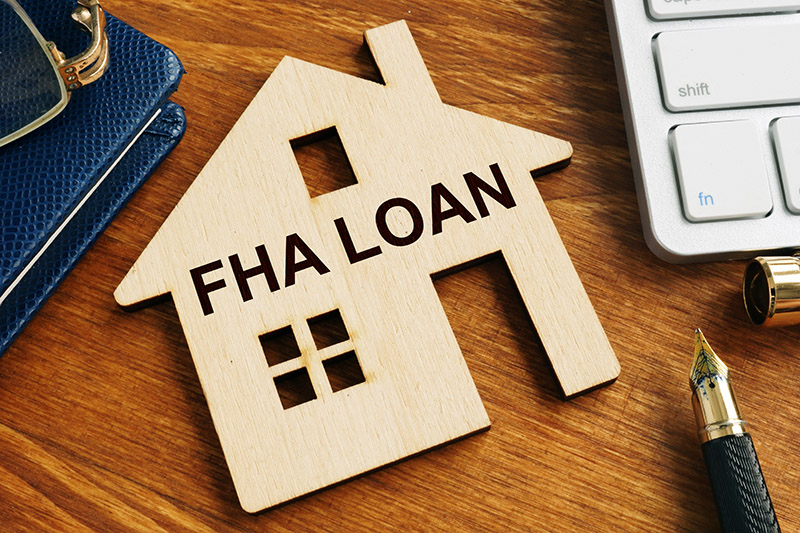When it comes to purchasing a home, especially for first-time buyers, navigating the complexities of mortgage options can be overwhelming. With so many loan types available, it’s important to understand which one is best suited to your needs. Among the most popular mortgage options is the FHA loan, a government-backed loan designed to help individuals and families become homeowners, particularly those with less-than-perfect credit or smaller down payments.
In this article, we’ll provide a comprehensive overview of FHA loans, explore the benefits and drawbacks, outline the eligibility criteria, and offer guidance to help you decide whether an FHA loan is the right choice for your home purchase in 2024.
What is an FHA Loan?
A Federal Housing Administration (FHA) loan is a type of mortgage that is insured by the FHA, a government agency within the U.S. Department of Housing and Urban Development (HUD). FHA loans were established to encourage homeownership among borrowers who might otherwise struggle to qualify for conventional mortgages due to factors like credit issues or a lack of substantial savings for a down payment.
FHA loans are particularly popular among first-time homebuyers and those with lower credit scores, as the eligibility requirements tend to be more flexible compared to traditional mortgage loans. Additionally, the low down payment requirement is one of the main advantages that make FHA loans attractive to many buyers.
How FHA Loans Work
FHA loans are designed to assist borrowers who have difficulty securing financing through conventional methods. Here’s a breakdown of how FHA loans work:
- Government-Backed Insurance: While the lender provides the loan, the FHA insures it, offering a safety net for the lender in case the borrower defaults. This insurance makes it easier for lenders to offer lower down payments and more flexible terms.
- Low Down Payment: FHA loans are known for their low down payment requirements, typically allowing buyers to put down as little as 3.5% of the home’s purchase price. This is especially beneficial for first-time homebuyers who may not have large savings.
- Lower Credit Score Requirements: The FHA allows borrowers with lower credit scores to qualify for a loan. Generally, a credit score of 580 or higher is required for the 3.5% down payment option, while borrowers with scores between 500 and 579 can still qualify with a larger down payment (usually 10%).
- Competitive Interest Rates: Since FHA loans are government-backed, they generally offer competitive interest rates. While they may not always be the lowest in the market, the rates tend to be more favorable compared to conventional loans for borrowers with weaker credit.
- Mortgage Insurance Premiums (MIP): One downside of FHA loans is that they require mortgage insurance. This insurance protects the lender in case of default, but it also adds to the overall cost of the loan. FHA loans include both an upfront mortgage insurance premium (UFMIP) and an annual mortgage insurance premium (MIP).
FHA Loan Eligibility Requirements
While FHA loans are more flexible than conventional loans, there are still specific requirements that borrowers must meet in order to qualify for the program. Below are the main criteria for FHA loan eligibility:
1. Credit Score Requirements
- Minimum Credit Score: The FHA allows for a minimum credit score of 580 for borrowers to qualify for the 3.5% down payment option. However, if your credit score is between 500 and 579, you may still qualify, but you will need to put down at least 10%.
2. Down Payment
- Minimum Down Payment: One of the major advantages of FHA loans is the low down payment requirement. Borrowers with a credit score of 580 or higher can secure an FHA loan with just 3.5% down. For those with lower credit scores, a down payment of at least 10% is typically required.
3. Debt-to-Income Ratio (DTI)
- DTI Limits: FHA guidelines typically require that your debt-to-income ratio (DTI) be no higher than 43%. This ratio compares your monthly debt payments to your gross monthly income. Some exceptions may be made if you have a strong credit profile or other compensating factors.
4. Employment History
- Stable Employment: Borrowers are generally required to have at least two years of steady employment in the same job or field. If you’ve had gaps in employment, the FHA may require explanations and additional documentation to verify your financial stability.
5. Property Requirements
- Primary Residence: The FHA loan program only applies to homes that will be used as a primary residence. FHA loans cannot be used to finance second homes or investment properties.
- Property Standards: The home must meet certain health and safety standards. An FHA-approved appraiser will assess the home to ensure it is in good condition and free from significant issues that could impact its livability.
6. U.S. Citizenship or Legal Residency
- Eligibility Status: Borrowers must be a U.S. citizen, a U.S. non-citizen national, or a qualified alien (legal permanent resident).
Advantages of FHA Loans
FHA loans offer several advantages that make them a compelling option for homebuyers, especially for those who may not qualify for conventional financing. Let’s explore some of the key benefits:
1. Low Down Payment Requirement
One of the biggest advantages of FHA loans is the low down payment. With a minimum down payment requirement of just 3.5%, FHA loans are an excellent option for those who have limited savings. This is especially helpful for first-time homebuyers who may be struggling to come up with a larger down payment.
2. Flexible Credit Score Requirements
FHA loans are much more forgiving when it comes to credit score requirements. While conventional loans often require a minimum credit score of 620 or higher, FHA loans only require a 580 score for the 3.5% down payment option. This makes FHA loans a viable option for individuals with less-than-perfect credit histories.
3. Competitive Interest Rates
Because FHA loans are backed by the government, they often come with competitive interest rates. While they may not always offer the lowest rates in the market, FHA loans generally have lower interest rates than conventional loans, especially for borrowers with lower credit scores.
4. Easier Qualification for First-Time Homebuyers
FHA loans are often the go-to option for first-time homebuyers, particularly those who are purchasing their first home with little-to-no savings or a limited credit history. The low down payment and flexible credit score requirements make it easier for first-time buyers to qualify and secure a loan.
5. High Loan Limits
FHA loans also come with higher-than-average loan limits, depending on the county and area in which you are purchasing a home. This allows you to buy a more expensive home compared to some other low-down-payment loan programs, making FHA loans a versatile option for many buyers.
Disadvantages of FHA Loans
While FHA loans offer many benefits, they are not without their drawbacks. It’s important to carefully consider the potential downsides before making a decision.
1. Mortgage Insurance Premiums (MIP)
One of the main disadvantages of FHA loans is the mortgage insurance premiums (MIP). Unlike conventional loans, where private mortgage insurance (PMI) can be removed once you reach 20% equity, FHA loans require mortgage insurance for the life of the loan if your down payment is less than 20%. This can significantly increase your monthly payment and the overall cost of the loan.
- Upfront Mortgage Insurance Premium (UFMIP): FHA loans require an upfront premium of 1.75% of the loan amount. This fee can be rolled into the loan, but it still adds to the overall cost.
- Annual Mortgage Insurance Premium (MIP): FHA loans also require an annual MIP that is paid monthly, which ranges from 0.45% to 1.05% of the loan balance, depending on the loan term and amount.
2. Limited to Primary Residences
FHA loans can only be used to finance a primary residence, which means they cannot be used to purchase second homes or investment properties. If you’re looking to buy a vacation home or an income-generating property, you’ll need to explore other loan options.
3. Property Requirements
FHA loans come with strict property requirements that ensure the home is safe and habitable. This can be an advantage if you’re buying a home that needs work, but it could also limit your options, especially if the home has structural issues, safety concerns, or doesn’t meet FHA standards.
4. Loan Limits
While FHA loans offer higher-than-average loan limits, they are still subject to limits based on the area in which you are purchasing a home. In more expensive areas, these limits may not be sufficient to buy a home, and you may need to consider other loan options, like conventional loans or jumbo loans.
Is an FHA Loan Right for You?
FHA loans are an excellent choice for certain buyers, but they’re not the right option for everyone. Here’s a quick summary to help you decide if an FHA loan is the best option for your home purchase:
FHA Loans May Be Right for You If:
- You’re a first-time homebuyer or don’t have a large down payment.
- You have a lower credit score (typically between
For more information visit the following sites:








